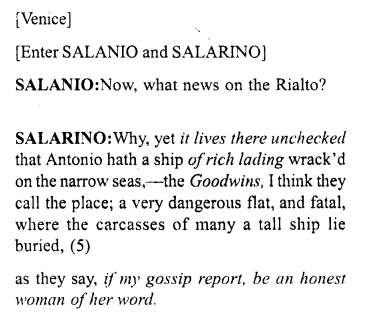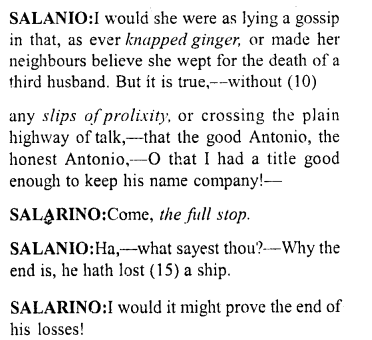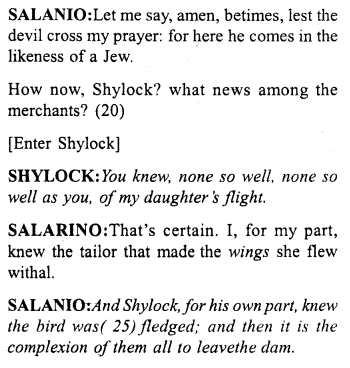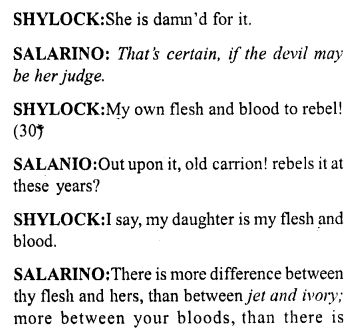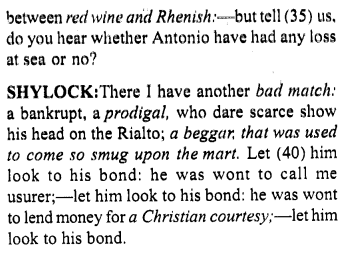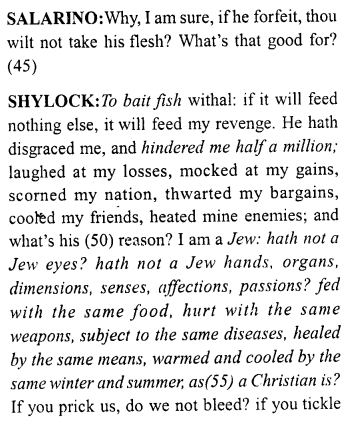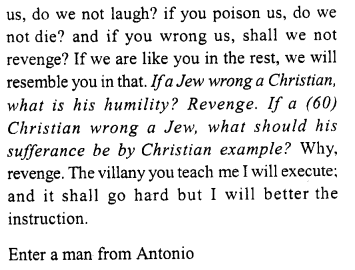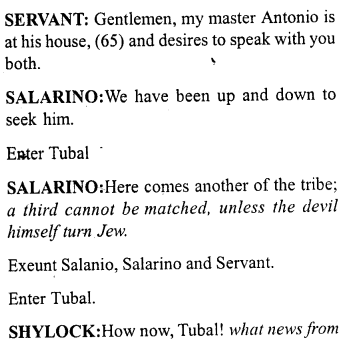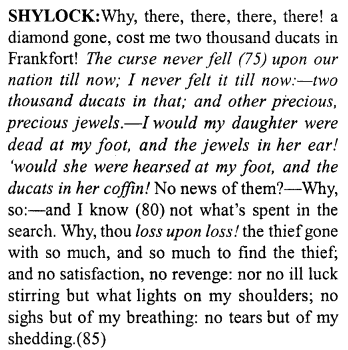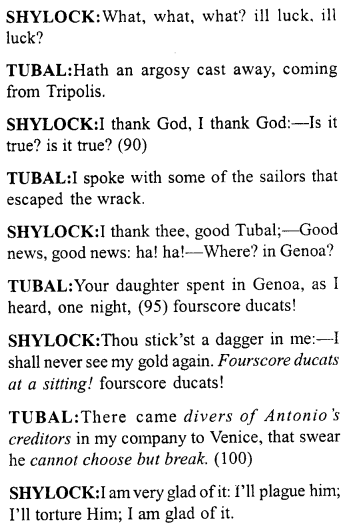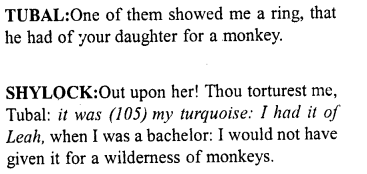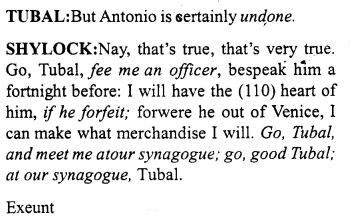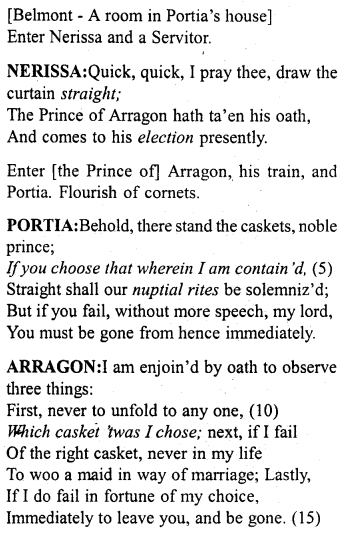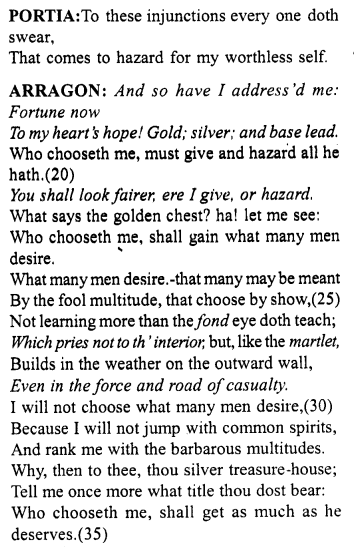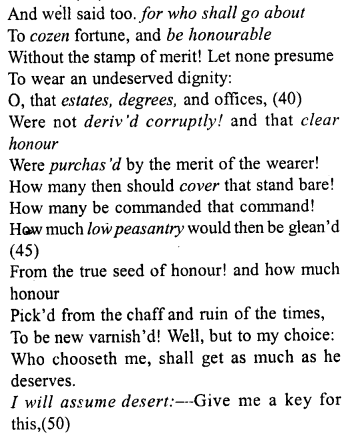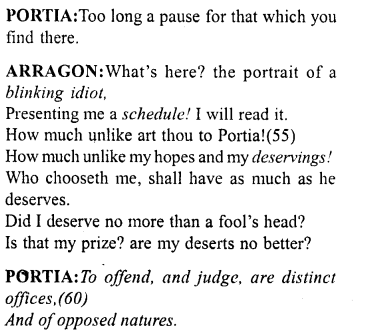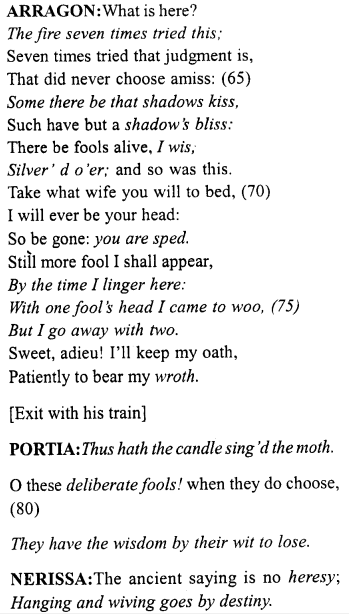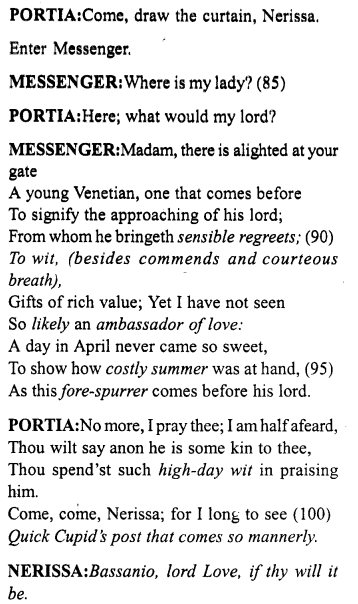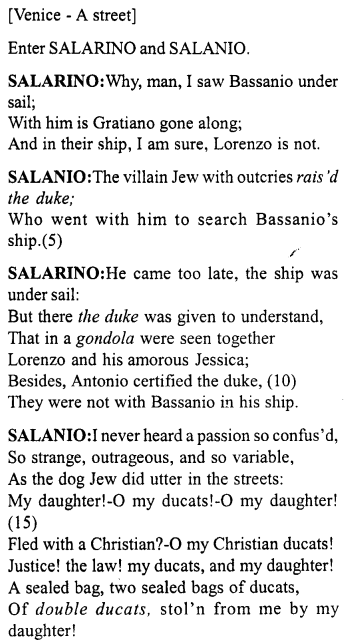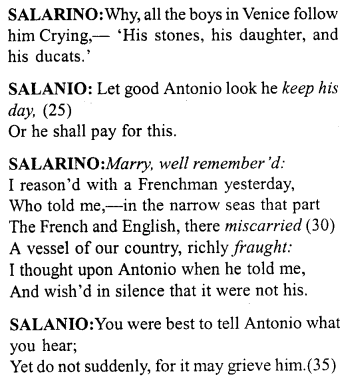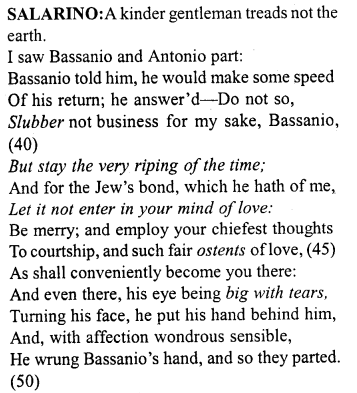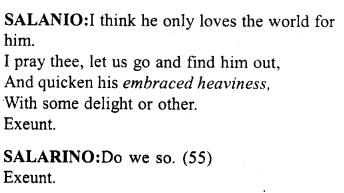Character Sketch of Portia in Merchant of Venice – ICSE Class 10, 9 English
EnglishMathsPhysicsChemistryBiology
ICSE SolutionsSelina ICSE SolutionsML Aggarwal Solutions
PORTIA
Her High Position in the Gallery of Shakespeare’s Heroines
Among the heroines created by Shakespeare, Portia occupies a high position. She produces a powerful impression on our minds; and her role in the play is most conspicuous and memorable. When the play the Merchant of Venice is mentioned anywhere, people think of two persons, namely Shylock and Portia; and these two persons are inseparable from each other in our minds because we remember Shylock chiefly as a villain wanting to take the life of his enemy Antonio, and we think of Portia as the person who defeats Shylock’s evil design. And, of course, Portia has other qualities also to impart a measure of greatness to her.
Her Sense of Humour and Her Sparkling Wit
Portia is a lady with a cheerful and optimistic disposition. She has a strong sense of humour and a sparkling, scintillating wit which she shows in the very beginning and then continues to show till the very end. It is only on one occasion in the whole play that she feels melancholy, and even sick of the world. When she is first introduced to us, she tells Nerissa that she is feeling weary of the world. But this melancholy mood lasts only for a few minutes, and is dispelled as soon as Nerissa begins to talk to her about the various suitors who have arrived at Belmont to try their luck at the caskets. Portia has something very amusing to say about each of these four suitors. Her comment on her English suitor is perhaps the most amusing. This comment ends with her saying that the Englishman perhaps bought his doublet in Italy, his round hose in France, his bonnet in Germany, and his behaviour everywhere. Subsequently she shows her sense of humour in setting the Rings story afoot and bringing it to an end which gives rise to plenty of mirth and laughter. Portia’s comments on her various suitors show also her powers of minute observation and her penetrating judgment of human character.
Her Devotion to the Memory of Her Father
Portia is genuinely devoted to the memory of her father who, while dying, had devised a kind of lottery for the purpose of her choice of a husband. She is determined to carry out the terms of her late father’s will. Of course, it is possible for her to disregard her father’s will and to marry a man on the basis of her own judgment. But she has implicit faith in her father’s wisdom, and she is convinced that her father’s will would prove to be the means of her getting the right man as her husband. In this belief she is greatly encouraged by Nerissa who tells her that good men are sometimes divinely inspired when they are dying and that they then take sound decisions. Having fallen in love with Bassanio, Portia could easily have married him without subjecting him to the test laid down by her father in his will, but she does not follow such a course. Even the man, with whom she has fallen in love, must prove his worth by passing the test before she would marry him; nor does she give him any hint as to the casket which he should choose.
Her essential Wisdom
Portia shows her wisdom in other ways as well. Her conversation with Nerissa at the very outset of the play contains some valuable remarks which are well-worded maxims. For instance, she says that it is a good divine who follows his own instructions. She also says that she can easier teach twenty what were good to be done than be one of the twenty to follow her own teaching. In fact, her speech to Nerissa on this occasion is a series of aphoristic statements containing gems of wisdom. Later in the play, she again makes similar remarks which show her wisdom and her vast knowledge of the world and of human nature. For instance, she says that a good deed shines in a naughty world just as a candle shines in the darkness of the night. She also says that nothing is good if it is not seen in its proper context. She makes a similar remark when she says that many things appear to be praiseworthy and perfect when they are looked at in the right perspective. But her wisdom appears in a most striking manner in the Trial Scene in the course of which she is able to turn the tables upon Shylock and defeat him with the same weapon with which he wanted to take Antonio’s life.
Her Compassionate Nature
Portia has essentially a compassionate nature. Her famous “Quality of Mercy” speech is a proof of that. This speech depicts mercy as a sublime quality which is twice blest: it blesseth him that gives, and him that takes. Mercy, she says, is an attribute to God Himself. It is unfortunate that the Jew pays no heed to Portia’s plea. At the same time, we must acknowledge the fact that, in pronouncing the punishment to which Shylock has rendered himself liable, she tends to forget her own ardent plea for mercy. She allows the Christians to have their own way with him. She allows them to force him not only to part with all his wealth but also to be converted to Christianity. However, in this connection we should not forget that in the Elizabethan times such punishment to a Jew was not thought to be inhuman or brutal.
Her Modesty, Humility, and Femininity
Although Portia is a woman with a powerful intellect and extraordinary powers of reasoning, she yet remains a woman at heart with a lot of modesty, humility, and compassion. When she disguises herself as a man, she succeeds eminently in playing a masculine role. But on all other occasions she shows that modesty lends to a woman the grace and the chain which make her a lovable person. When Bassanio puts his hand on the lead casket, she feels overwhelmed by a feeling of ecstasy, and is hardly able to restrain her feelings on this occasion. When he actually opens the lead casket and, finding her picture in it, claims her with a kiss, she makes a speech which embodies the very spirit of humility. She describes herself as an unschooled, unlessoned, and unpractised woman, and then goes on to make a complete surrender of herself to the man who has won her as his wife.
Her Generous Disposition
Portia is a very large-hearted and generous woman. Every wealthy person is not generous. Some wealthy persons are also the greatest misers. Shylock is, of course, the most striking example of this sort of thing. But Portia combines her vast material wealth with an inner treasure of generosity. On learning the plight of Bassanio’s dearest friend, she offers to Bassanio any amount of money that he may need for the resuce of Antonio from the clutches of the Jew. And then she herself dons a lawyer’s clothes to function as a judge in the case because she has hit upon a plan to save Antonio’s life.
The Muse of Wisdom and Love
For all these reasons, one of the critics describes Portia as the Queen of this play, and as the Muse of wisdom and love. This critic also says that Portia is as natural as Eve in Paradise.
For More Resources
